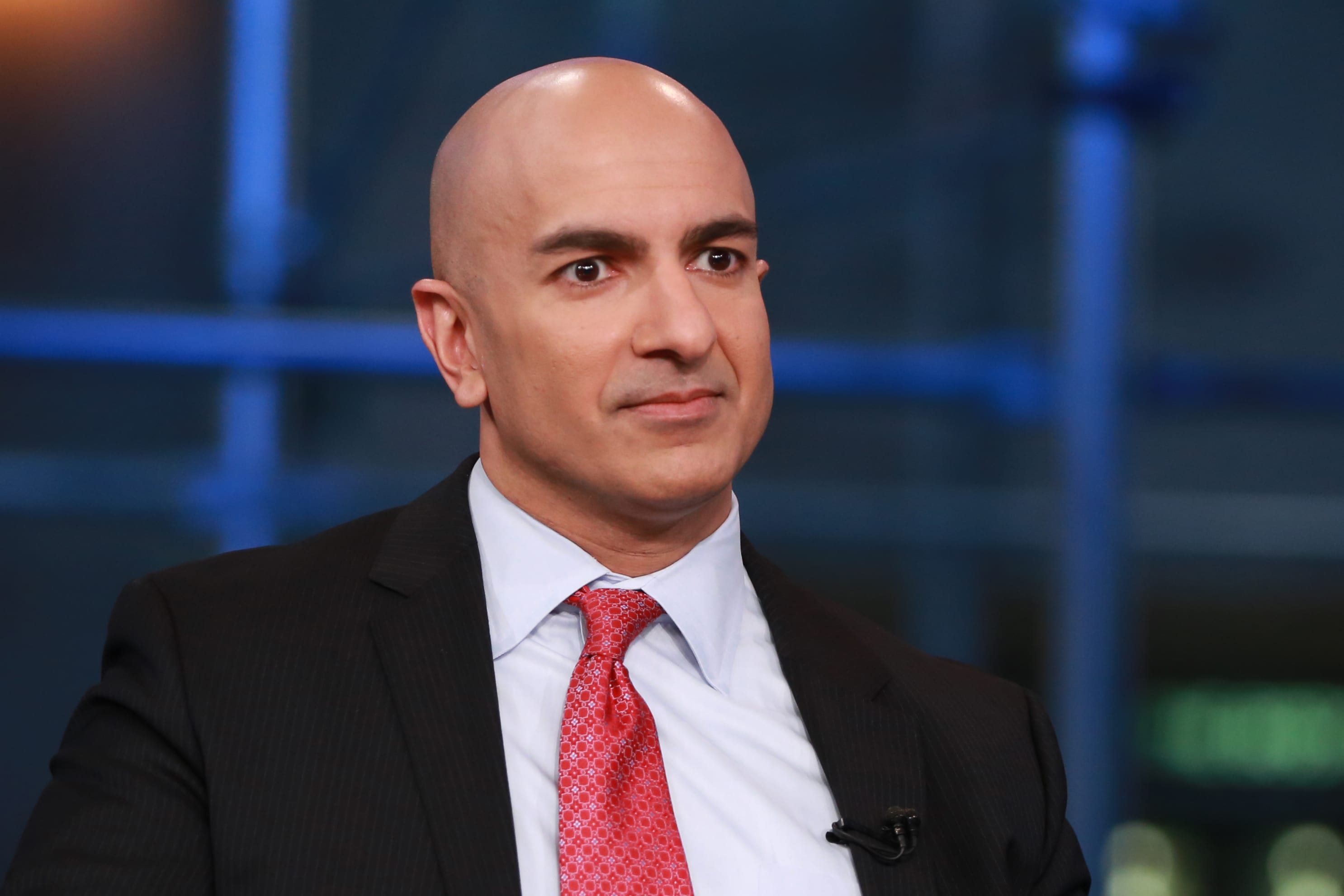Even amid substantial bouts of market tumult, Minneapolis Fed President Neel Kashkari sees the U.S. as holding the upper hand in its trade showdown with China.
Stocks took another sharp drop Monday, but Kashkari said broader economic indicators are showing little signs of stress as the two sides ratchet up their tariff duel.
"Relative to China, the U.S. is in a very strong position," the central bank official told CNBC's "Squawk Box " team. "Not only is our economy bigger, our economy is much less sensitive to trade. Trade is important to the U.S. economy, but it's much more important to the Chinese economy, just as a share of its economy.
"So if there's a tit-for-tat strategy, and I'm not advocating it, but a tit-for-tat strategy would seem to lean toward the U.S. strength rather than the China strength."
As Kashkari spoke, China announced it was levying another round of tariffs on $60 billion in American goods. The news coincided with another leg down for stocks, and the Dow Jones Industrial Average, which lost about 1.9% last week, dropped 450 points in early trading Monday.
Despite Wall Street's jangled nerves over the swaying trade developments, Kashkari said the tariffs have yet to have a big impact in the real economy. Indeed, U.S. GDP rose a solid 3.2% in the first quarter, and nonfarm payrolls swelled by 263,000 in April while the unemployment rate hit a 50-year low of 3.6%.
"By and large, most businesses in my region are still feeling quite optimistic about the U.S. economy," he said. "If that sentiment would change, that would be something we would have to pay attention to."
As things stand, he doesn't see a need for the Fed to make adjustments to its current policy stance.
Central bank officials have indicated they will be patient about future adjustments and do not have plans on raising or cutting rates for the remainder of 2019. Market expectations are for a quarter-point rate cut by the end of the year, though Kashkari said he's comfortable at the current level, which has the Fed keeping its benchmark interest rate in a target range of 2.25%-2.5%.
"I think that I was more nervous [about policy] six months ago. I was more nervous about what the monetary path would do to the real economy," he said. "I think we have rates roughly at neutral."
Kashkari is a nonvoting member of the policymaking Federal Open Market Committee, but he does have input in discussions.


